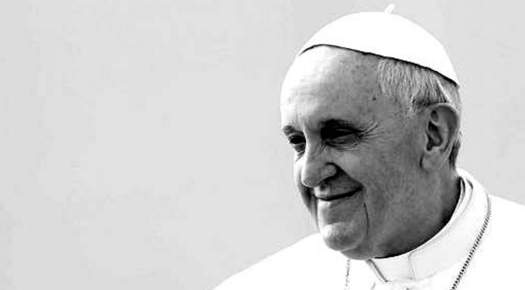
Pope Francis recently said it is wrong to identify Islam with violence, as idolatry of money and social injustice are among the leading causes for terrorism.
“I think it is not right to identity Islam with violence,” he informed reporters aboard the papal plane while flying back to Rome after a five-day trip to Poland. “This is not right and this is not true.”
Francis was answering a question concerning the July 26 killing of an 85-year-old Roman Catholic priest who was killed during a church service in France, when masked attackers forced him to kneel before his congregation and mercilessly slit his throat. Islamic State later claimed responsibility for the attack.
“I think that in nearly all religions there is always a small fundamentalist group,” he said. “We have them … I don’t like to talk about Islamic violence because every day when I look at the papers I see violence here in Italy - someone killing his girlfriend, someone killing his mother-in-law. These are baptized Catholics … If I speak of Islamic violence, I have to speak of Catholic violence. Not all Muslims are violent.”
He said there are various causes for terrorism.
“I know it is dangerous to say this but terrorism grows when there is no other option and when money is made a god and it, instead of the person, is put at the center of the world economy,” he said. “That is the first form of terrorism. That is basic terrorism against all humanity. Let’s talk about that.”
When he set out on his trip to Poland on July 27, Francis said the killing of the priest in France and a string of other heinous attacks in recent times have proved that the world is at war but the reason for such violence is not religion. He explained how the lack of economic opportunities for today’s youth is to blame for increasing terror attacks throughout the world.
“I ask myself how many young people we Europeans have left devoid of ideals, who do not have work. Then they turn to drugs and alcohol or enlist with IS,” he said, referring to Islamic State.
Islamic clerics in Pakistan commended the pontiff for refusing to identify Islam with violence, saying his opinion would benefit both Muslims and Christians and help start an interreligious dialogue between members of both faiths.
“I fully welcome the pope's statement and find it equally important for Christians as well as Muslims,” said Mufti Muhammad Naeem, a scholar and head of International Deobandi Islamic Institute, also known as Jamia Binoria. “By not linking terrorism with religion, Pope Francis will help promote interreligious harmony among Christians and Muslims. I urge media to give more airtime and space to such remarks which can have a positive impact on people and help combat religious hatred and intolerance.”
Another mufti said mainstream media tends to report this kind of news in such a manner that it often establishes an unfair connection between violence and religion.
“In my view, Pope Francis is 100 percent correct when he refuses to link terrorism with religion,” said Mufti Muneeb ur Rahman, a scholar and head of the country’s official moon-sighting committee. “No matter what group, color, creed, ethnicity or country a terrorist follows or belongs to, he remains an individual and his acts cannot be bracketed within religion. … In the West, this negative mindset is on the rise that Islam is to be blamed for violence. Such misplaced ideology can fan more hate, extremism and violence. … Under such circumstances, the statement of Pope Francis holds great significance for Muslims and Christians in Pakistan and across the world. … I would propose Pope Francis, the Archbishop of Canterbury, Muslim scholars and leaders of other religions sit together and discuss their commonalities [because] all religions denounce inequality, oppression and social injustice.”
Hafiz Tahir Ashrafi, head of Pakistan's Ulema Council, too applauded the pontiff for his comments.
“Such a statement will pave the way for interreligious dialogue and harmony and bring people of different faiths closer and defeat the ideology of extremists,” he said. “The pope has rightly pointed out that violent elements are present everywhere and that a religion cannot be held accountable for the wrongdoing of some individuals.”
Christians continue to rank as the most persecuted religious minority in Muslim-majority Pakistan. Pakistani Christians have been the target of several terrorist attacks since the United States, viewed by most as a Christian nation, decided to invade Afghanistan in October 2001 in the aftermath of the notorious 9/11 attacks.
Photo Credits: Squarespace
